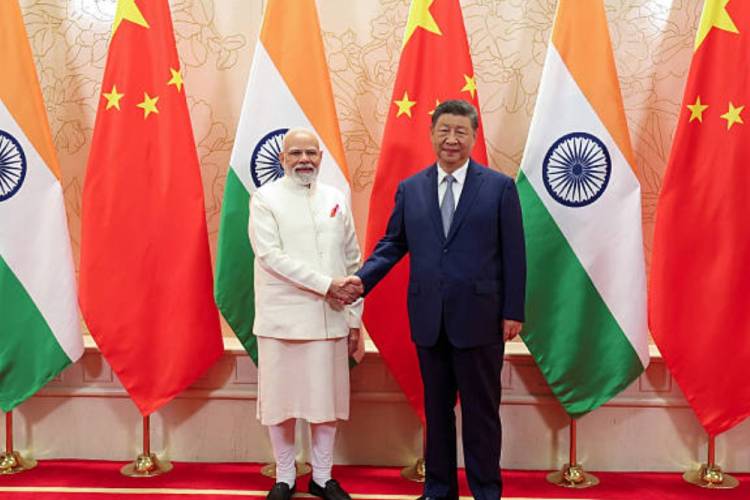
The SCO Summit 2025, hosted by China, comes at a time of heightened global uncertainty. In his welcome banquet address, President Xi Jinping underscored that the grouping must shoulder greater responsibilities in safeguarding regional peace and stability, while also promoting development amid accelerating global changes. Prime Minister Narendra Modi arrived in China on a two-day visit with a clear agenda: to secure India’s economic and security interests, even if that meant thawing relations with Beijing.
The optics of camaraderie between Xi, Vladimir Putin, and Modi were carefully choreographed. Despite fragile bilateral ties, the three leaders chose to set aside differences in the face of an evolving global order, disrupted by U.S. trade wars and rising protectionism. For India, the summit offered a platform to press hard on terrorism, to explore pragmatic openings with China, and to position itself as a voice for the Global South.
READ | Plastics treaty fate exposes weakness of global resolve
Reset with China
With Modi’s rapport with U.S. President Donald Trump fraying, India-China relations moved into sharper focus. The highlight of the summit was the bilateral meeting between Modi and Xi — their first since 2018. Building on progress made in Kazan in 2024, the two leaders agreed to deepen strategic communication, expand exchanges, and address each other’s core concerns. Modi stressed that cooperation between India and China, representing 2.8 billion people, was vital not just for the two nations but for global stability.
India backed China’s SCO presidency and invited Xi to the 2026 BRICS Summit in India — gestures that signalled intent for a diplomatic reset. The recalibration was shaped partly by external pressures, notably steep U.S. tariffs, and underscored India’s willingness to balance economic necessity with strategic caution.
The SCO’s expanding reach
Formed in 2001, the SCO has grown from six founding members into a 26-nation forum, comprising 10 members, two observers, and 14 dialogue partners. With China, Russia, and India at its core, the grouping represents nearly half the world’s population and a quarter of its economy.
India used the platform to argue that outdated frameworks marginalise developing nations. Modi’s plenary remarks described this exclusion as an injustice to future generations. His call for a multipolar world order and his emphasis on climate-resilient infrastructure, sustainable development, and fairer trade arrangements resonated with the SCO’s stated goal of countering unilateralism. This stance reinforced India’s claim to leadership within the Global South.
Shared agendas and India’s influence
The summit adopted resolutions on energy cooperation, eco-tourism, and a long-term SCO Development Strategy to 2035. For India, a win lay in shaping this forward-looking agenda. Equally important was its engagement with Central Asia — where the SCO offers access to resources and markets otherwise dominated by China’s Belt and Road Initiative (BRI). India reiterated its opposition to the BRI, citing sovereignty violations in Pakistan-occupied Kashmir, while advancing alternatives like the Chabahar Port and the India-Middle East-Europe Economic Corridor (IMEC).
The April 22 Pahalgam terror attack, which killed 26 civilians, framed India’s sharpest intervention. Modi thanked SCO members for their solidarity and insisted there should be no double standards in fighting terrorism. He urged members to hold accountable those who “perpetrate and support cross-border terrorism.” The summit’s final declaration condemned the attack, affirming that perpetrators and sponsors must face justice — a notable diplomatic gain for New Delhi.
SCO Summit 2025: Balancing divergent interests
Yet the SCO remains a contested space. Diverging interests among China, Russia, India, and Pakistan complicate its cohesion. India’s participation highlights its diplomatic agility — engaging in a China-led forum while maintaining partnerships with the West, Japan, and the EU. Whether this balancing act secures lasting gains remains uncertain.
For India, selective but purposeful participation in the SCO ensures strategic dividends without compromising core principles. The 2025 summit demonstrated that, in a fractured world order, India can craft space for cooperation rooted in sovereignty and mutual respect. Its message was clear: diplomacy that blends pragmatism with principle is the surest path to stability and prosperity.
Anil Nair is Founder and Editor, Policy Circle.

